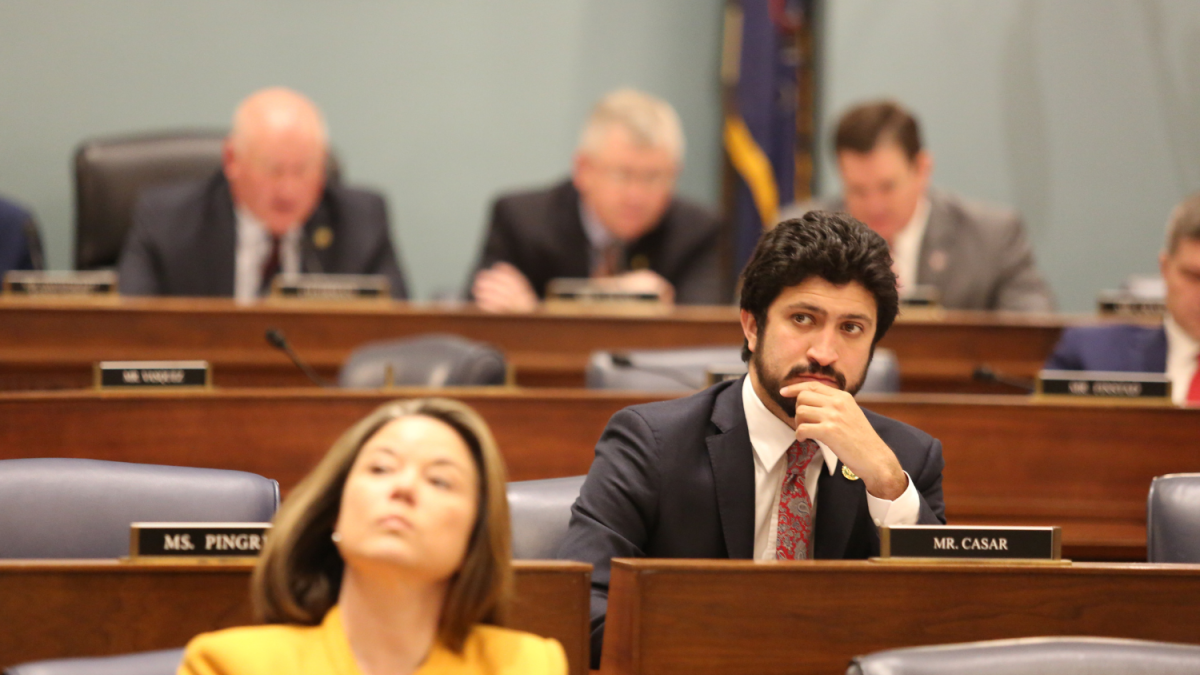NEWS: Congressman Greg Casar Introduces the No Photo for Food Act

No one in this country should go hungry: Photo requirements create unnecessary barriers for working families
WASHINGTON – Today, Congressman Greg Casar (D-Texas) introduced the No Photo for Food Act, which would remove and prohibit the requirement for a photo on a SNAP card, making getting groceries easier for working families.
This bill would amend the Food and Nutrition Act of 2008 to prohibit the placement of a photograph on a SNAP benefit card across the country. Currently, the state of Massachusetts requires a photo, and Texas has previously tried to implement this barrier.
“As some politicians try to take away food benefits from working class Americans, we'll do everything we can to make sure our families do not have to choose between food and rent,” said Congressman Greg Casar (D-Texas). “States that are trying to require photos on SNAP cards make it more difficult for families to send their loved ones or kids to pick up groceries for them when they have to work an extra shift or deal with an emergency. In states like Texas, where there’s more food insecure kids than anywhere else in America, we should be focused on feeding families The No Photo for Food Act is common sense.
“Instead of politicians making it harder for working class people to get food, Congress should make it more difficult for billionaires to evade their taxes.”
Specifically, theNo Photo for Food Act would:
- Eliminate photo requirement on the card
- Prohibit future state rules requiring photo IDs for SNAP benefits
Original co-sponsors include U.S. Representatives and House Committee on Agriculture members Alma Adams(NC-12), Jasmine Crockett (TX-30), Jonathan Jackson (IL-01), Jim McGovern (MA-02), and Andrea Salinas (OR-06).
The bill is endorsed by the American Public Human Services Association, Feeding Texas, the Massachusetts Law Reform Institute, and the National Grocers Association.
“The 2023 Farm Bill encourages us to continue building toward a more modern and customer-centered SNAP. Photo EBT works counter to this goal as it distracts from the greater need to improve EBT security and contributes to harmful stigma for SNAP customers at the checkout line,” said Chloe Green, Senior Policy Associate of the American Public Human Services Association. “The No Photo for Food Act supports SNAP agencies to forego an option that has already been proven ineffective and administratively burdensome.”
“Here in Texas, previous legislation to introduce photo ID requirements for SNAP was rejected because lawmakers saw the unintended consequences,” said Celia Cole, CEO of Feeding Texas. “SNAP benefits are determined for the household as a whole and are required to be accessible to all members of the household. Photo ID requirements prevent the legitimate use of benefits, put retailers at risk of violating federal law, undermine efforts to modernize SNAP, and often inflict the most harm on those the program is meant to serve. In short, photo ID is a clunky, outdated tool when we have more effective and sophisticated methods of protecting program integrity.”
"SNAP provides a vital safety net to some of the most vulnerable members of our society, including families with children, the elderly, and the disabled,” said Stephanie Johnson, Vice President of the National Grocers Association. “America's independent supermarket operators have long been invaluable partners with federal and state government agencies in this efficient and effective program. Proposals to include photo identification on EBT cards would unfortunately increase program operational costs and complicate administration with little impact on fraud. This bill to prohibit photo identification on EBT cards is not just about protecting retailers from undue liability, but also ensuring equitable access to food."
Resources:
- Bill text
- The New York Times: There’s Just One Problem With Photos on Food Stamp Cards
- Urban Institute: Assessing the Merits of Photo EBT Cards in the Supplemental Nutrition Assistance Program
###
Congressman Greg Casar represents Texas’s 35th Congressional District in the U.S. House of Representatives, which runs down I-35 from East Austin to Hays County to the West Side of San Antonio. A labor organizer and son of Mexican immigrants, Casar serves as the Whip of the Congressional Progressive Caucus for the 118th Congress. He also serves on the Committee on Oversight and Accountability and the Committee on Agriculture.